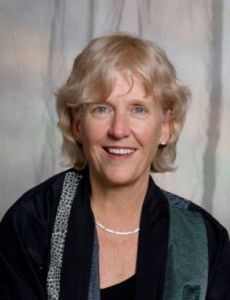
Boston University School of Law alumna Margaret Xifaras was one of seven people appointed to the University of Massachusetts Board of Trustees by Gov. Deval Patrick.
Xifaras, who graduated from BU Law in 1981, was invited to join the board, despite getting ousted by the Democratic National Committee after a 28-year membership, for her support of President Barack Obama over Hilary Clinton in the 2008 elections, according to an article in The Boston Globe.
Xifaras received her undergraduate degree from University of Illinois and spent two years in central Africa with the Peace Corps. She also has her Masters’ degrees from Fletcher School at Tufts University and Southeastern Massachusetts University, now known as UMass Dartmouth.
Xifaras worked with the city of New Bedford while receiving her law degree, and has remained as a partner at the law firm of Lang, Xifaras & Bullard for about 40 years. Currently, Xifaras is a member of the Mass. Bar Association.
“I had three kids when I went to BU Law,” Xifaras said. “I was always either in an empty room studying or on a bus going back and forth from Dartmouth.”
In the early 2000s, she advocated for the merger of Southern New England School of Law and UMass Dartmouth to create the Bay State’s first public law school— where she later taught family law and was recruited to the Board of Trustees.
“It was on my watch that we looked to affiliate with the University of Mass. at Dartmouth,” Xifaras said. “We thought this would be a really great opportunity to create a public law school.”
Xifaras’s role as a board member entails voting on issues, analyzing funds and joining committees based on skill sets.
“All nineteen members of the board have a single vote and matters are processed through a committee system, so you are active not only as a full board member, but as a medium through committee structures,” she said.
State schools should contain costs so they never lose sight of affordability, Xifaras said. The student body, faculty and resources need to drive excellence in a university, she said, although budget restraints are frequent concerns.
“We’d love to have all of the best and brightest, but we have an obligation to service those folks who struggle a bit but deserve and want an educational ticket,” Xifaras said. “We have to be very creative and entrepreneurial.”
While state universities have a tremendous pressure to keep a cap on fees and tuition, she said there is also a pressure to expand with new labs and facilities for cutting-edge research.
“One of the critical things when thinking about law schools and their role is cost,” Xifaras said. “You can’t have students coming out with hundreds of thousands of dollars in debt and expect that they’ll go into public service or a non-profit.”
With a teaching degree in social studies and two years as a teacher in the Peace Corps, Xifaras said that as a board member she can draw upon her experience as an educator.
“I think having done some front-line teaching and seeing what difference quality materials make, including bringing in speakers and having real-life lessons mixed into theoretical ones, it gives me a touch of insight,” she said. “But I’ve got a lot to learn.”
This is an account occasionally used by the Daily Free Press editors to post archived posts from previous iterations of the site or otherwise for special circumstance publications. See authorship info on the byline at the top of the page.



